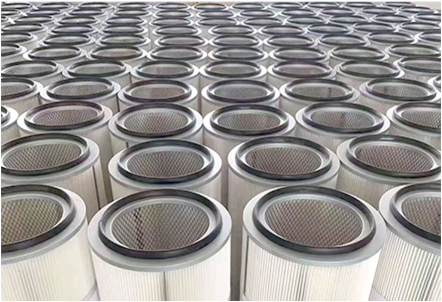 Tel:
+8615930870079
Tel:
+8615930870079
נוב . 27, 2024 01:54 Back to list
Replacement Cartridge Oil Filter for Enhanced Engine Performance and Protection
Understanding Cartridge Oil Filters A Comprehensive Overview
Cartridge oil filters are a crucial component of modern automobile engines, playing a vital role in maintaining engine performance and longevity. The importance of a well-functioning oil filter cannot be overstated, as it contributes significantly to the overall efficiency and durability of the engine. In this article, we will explore the function, types, maintenance, and benefits of cartridge oil filters.
What is a Cartridge Oil Filter?
A cartridge oil filter is a type of oil filter that houses a filtering element within a cylindrical canister. Unlike traditional spin-on filters, which are an integrated unit of filter and base, cartridge filters are designed to be replaced separately from their outer casing. This design allows for easier replacement and often greater efficiency in filtration, making them a popular choice in many vehicles, particularly in newer and high-performance models.
Function of Cartridge Oil Filters
The primary function of an oil filter, including cartridge types, is to remove particles, contaminants, and impurities from the engine oil. As oil circulates through the engine, it absorbs dirt, metal shavings, and other contaminants from the engine components. Over time, these impurities can compromise the oil's effectiveness, leading to increased engine wear and potentially catastrophic engine failure.
Cartridge oil filters are designed to trap these unwanted particles, allowing clean oil to lubricate engine parts effectively. This filtration process not only ensures optimal engine performance but also contributes to better fuel efficiency, as clean oil reduces internal friction.
Types of Cartridge Oil Filters
Cartridge oil filters come in various designs, each catering to different engine types and user needs. The most common types include
1. Paper Filters These are the most ubiquitous type and use a pleated paper element to capture contaminants. They are effective and relatively inexpensive.
2. Synthetic Filters Made from synthetic materials, these filters often provide superior filtration capabilities. They can capture finer particles than their paper counterparts and typically have a longer service life.
3. Magnetic Filters Some cartridge filters incorporate magnetic elements to attract and capture metal particles. This added feature enhances the filter's ability to protect the engine from abrasive wear.
4. High-Performance Filters Designed for racing or high-performance vehicles, these filters often utilize advanced materials and design to maximize flow and filtration efficiency.
cartridge oil filter

Maintenance of Cartridge Oil Filters
Proper maintenance of cartridge oil filters is vital for ensuring optimal engine performance. Here are some key points to consider
1. Regular Replacement It is essential to follow the manufacturer’s recommendations for filter replacement intervals. Generally, replacing the oil filter during every oil change is a good rule of thumb.
2. Quality Products Opt for high-quality filters from reputable manufacturers. While cheaper filters may save money upfront, they can lead to increased engine wear and costly repairs in the long run.
3. Installation When replacing a cartridge oil filter, ensure the old filter's rubber o-ring is removed to prevent leaks. Proper installation is critical for maintaining a seal and preventing oil from bypassing the filter.
4. Oil Type Use the correct type of oil recommended for your vehicle. Some oils can lead to increased sludge buildup and may not be compatible with certain filters.
Benefits of Cartridge Oil Filters
There are numerous benefits to using cartridge oil filters in vehicles
- Efficient Filtration The design of cartridge filters promotes greater surface area for filtration, allowing for more contaminants to be captured without a significant reduction in oil flow.
- Environmental Impact As cartridge filters separate the filter element from the casing, they reduce waste and environmental impact by allowing for reusable canisters, ultimately leading to less landfill waste.
- Economic Savings While cartridge filters may have a higher initial cost compared to traditional filters, their longer lifespan and greater filtration capabilities can result in lower overall costs associated with engine maintenance and repairs.
Conclusion
In conclusion, cartridge oil filters are an essential component of vehicle maintenance, ensuring that engine oil remains clean and effective. Understanding their function, types, and maintenance not only helps in selecting the right filter but also extends the life of your engine. By prioritizing regular maintenance and using high-quality filters, vehicle owners can enjoy enhanced performance and reliability on the road.
-
Types and Applications of Air Filtration CartridgesNewsJul.28,2025
-
The Role of Gas Turbine FiltersNewsJul.28,2025
-
Mastering Air Filter Cartridge UseNewsJul.28,2025
-
Advanced Turbine Filters for Modern Gas TurbinesNewsJul.28,2025
-
Cellulose Air Filter Cartridge Advantages in Dust FiltrationNewsJul.28,2025
-
Cellulose Filters for Air Particle ReductionNewsJul.28,2025

 Email:
Email:





